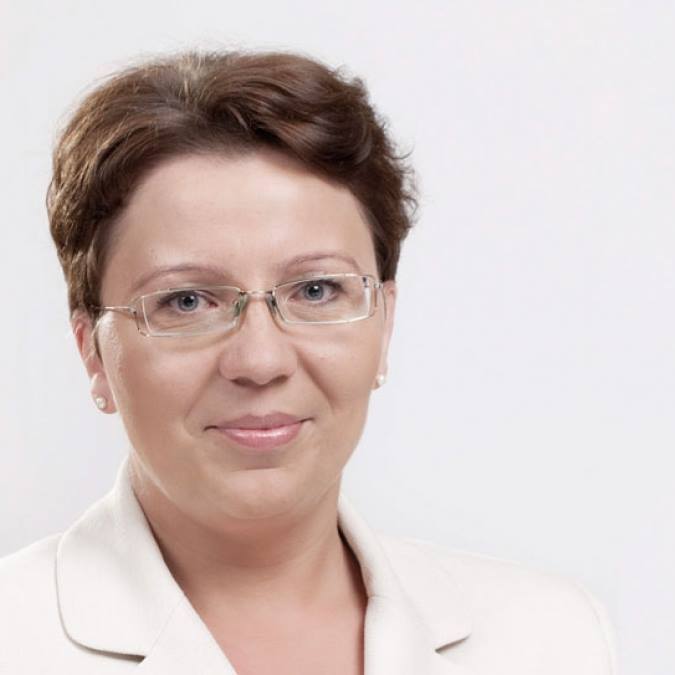
A few days ago, the city of Vilnius celebrated its 700th anniversary. I understand that Polish accents were present during the celebrations. To what extent has the Polish heritage been referred to?
Vilnius has a huge Polish heritage, so many centuries of common history. We Poles still constitute almost 18 percent of the total population of Vilnius. However, I can’t say that there is enough Polish element in celebration of the birthday of Vilnius. I regret this fact, because the Polish faction co-governs and is responsible, among others, for culture. I even tried to ask the responsible departments about it, but they only sent me brief information: “all historical projects implemented in 2021 include Polish culture, because it is inextricably linked with Vilnius and its history, including “The Tastiest Vilnius Stories”, the TV program “Vilnius Mythbusters”, the video project “Vilnius Historical Menu”, routes of 7 trips towards Vilnius 700″. Contemporary culture is presented through the realization of projects by the winners of the “7 ideas” competition. For example, the famous Polish contemporary music composer Agata Zubel takes part in the “Music for Vilnius” project. After arriving in Vilnius in 2022, she chose a space for which she creates a special composition. It will be presented at a concert in 2023. The Polish Institute in Vilnius is one of the partners of the “Vilnius Jubilee Program”.
I believe that this is a very modest list, because our common history of several hundred years obliges us to put more emphasis on celebrating such a beautiful jubilee. We, who have lived here for centuries, could join the joint celebrations to a greater extent, after all, we are full-fledged residents of our beautiful Vilnius.
Poles in Lithuania try to cultivate their native language and traditions. Is it easy nowadays? How are their relations with the Lithuanian authorities?
Yes and no. We are no longer prosecuted for the use of the Polish language in public space, or court cases are not initiated for subtitles in Polish, as was the case a few years ago. However, it is still not easy to be Polish and use Polish wherever you want. Although in the long-term policy of destroying schools with the Polish language of instruction, despite the propaganda about great relations between our countries, nothing has changed. Our schools are still being destroyed and closed.
What are the main obstacles faced by Poles in Lithuania who want to cultivate their Polishness, their roots?
It’s all about legal restrictions. This is the issue of Polish schools, where we are still being harassed as a society. Limiting the number of students in classes in schools of national minorities should be abolished. Let me cite the example of the Trakai region, where Polish schools are being liquidated. On the other hand, in Poland, schools with Lithuanian as the teaching language are opening, despite the small number of students in classes. It seems everyone understands, except for the Lithuanian authorities, that a national minority is not a threat but a wealth for a given country.
What else could the Polish government do to help them maintain their identity?
“Else” in the question suggests that it is doing something, and at the moment the Polish government is limited to transferring smaller or larger sums of money collected from the Polish society, and it could do a lot. First of all, it has a tool in the form of the Polish-Lithuanian Route in which all our rights and expectations are written down. From the very moment of signing this Treaty, Lithuania consciously breaks its provisions, from the Polish side we hear only declarations and that is where it ends.
It is a pity, because there is no effective policy towards the Polish minority in Lithuania. I don’t know if there is such a phenomenon in the EU that an 80% minority living in a certain region cannot use their language in local offices. However, I know many cases where a few percent minority has the right to do so.
You joined the group of Animators of Poland’s Image in Europe. What are your plans with this organization? What would you like to start with?
Exactly, I joined the Animators of Poland’s Image in Europe formally and legally, I even have a document confirming this fact. However, I can say that I have been doing it all my life, I have cared for Poland’s good name, without a document or confirmation.
Every Pole, regardless of where he or she lives, has a Polish duty to take care of his/her Fatherland. I live with the conviction that if Poland is a strong country and things will be good there, then we Poles scattered around the world will live better! Poland will remember us and defend us! I hope that it also us Poles from Lithuania will finally start to defend.
Interview by Anna Wiejak
